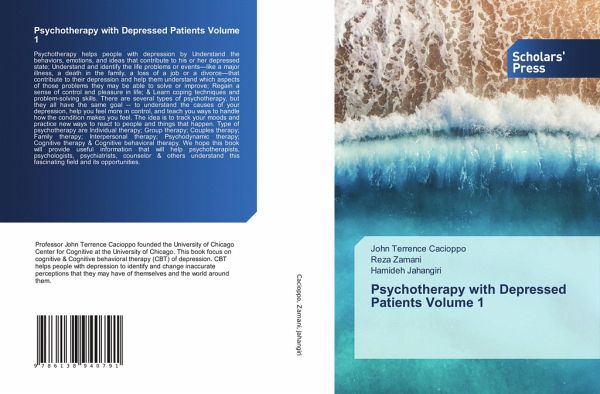
Psychotherapy with Depressed Patients Volume 1
Versandkostenfrei!
Versandfertig in 6-10 Tagen
85,99 €
inkl. MwSt.

PAYBACK Punkte
43 °P sammeln!
Psychotherapy helps people with depression by Understand the behaviors, emotions, and ideas that contribute to his or her depressed state; Understand and identify the life problems or events-like a major illness, a death in the family, a loss of a job or a divorce-that contribute to their depression and help them understand which aspects of those problems they may be able to solve or improve; Regain a sense of control and pleasure in life; & Learn coping techniques and problem-solving skills. There are several types of psychotherapy, but they all have the same goal -- to understand the causes ...
Psychotherapy helps people with depression by Understand the behaviors, emotions, and ideas that contribute to his or her depressed state; Understand and identify the life problems or events-like a major illness, a death in the family, a loss of a job or a divorce-that contribute to their depression and help them understand which aspects of those problems they may be able to solve or improve; Regain a sense of control and pleasure in life; & Learn coping techniques and problem-solving skills. There are several types of psychotherapy, but they all have the same goal -- to understand the causes of your depression, help you feel more in control, and teach you ways to handle how the condition makes you feel. The idea is to track your moods and practice new ways to react to people and things that happen. Type of psychotherapy are Individual therapy; Group therapy; Couples therapy; Family therapy; Interpersonal therapy; Psychodynamic therapy; Cognitive therapy & Cognitive behavioral therapy. We hope this book will provide useful information that will help psychotherapists, psychologists, psychiatrists, counselor & others understand this fascinating field and its opportunities.












